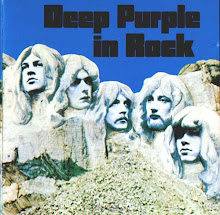The 'featured article of the day' on Wikipedia today is about Cui Jian's landmark hit Nothing To My Name (一无所有 yi wu suo you), which was first written or performed some 25 years ago. It's basically an angry teenager's song of frustrated love, but it appears to bear a subtext of wider dissatisfactions with society: it struck a nerve with the restive Chinese youth of the late '80s and was widely interpreted as a call to revolution. Cui performed the song, to a rapturous reception, for a crowd of student protesters during the sit-in at Tiananmen Square in the early summer of 1989. (At least, according to the legend, he did; he certainly visited the Square, and performed for the students at least once, but there is dispute as to whether he in fact played this song [although it seems almost unimaginable that he would have omitted it!]. However that may be, as a result of his expressed support for the protesters, he was subject to more than a decade of heavy restrictions on his public appearances. In Beijing, he continued to be nominally 'banned' from performing live at all well into the Noughties, although he was making occasional clandestine appearances during my early years here. The Rolling Stones had tried to insist on him opening for them at their proposed 2003 gig at the Workers' Stadium in Beijing, but that was cancelled because of the SARS outbreak. I'm not sure if Cui's participation would have come to pass at that time. He played with them when they finally came to China a few years later, but a Beijing date was scrapped from the schedule, so we all had to go down to Shanghai for that [really - I think there were more Beijingers than Shanghai folks at that gig, scores of people that I recognised!]. I think the gig he played in about 2005 or 2006 at the New Get Lucky Bar - not a very large venue - was the first time that he'd been able to a advertise a performance in Beijing in more than a decade and a half. And the first big concert he did here was headlining the Chaoyang Pop Festival at the end of 2007.)
Although that 1980s spirit of rebelliousness has pretty much withered and died, the song retains a stirring, rabble-rousing power; it is inspiringly angry. It is probably the most anthemic of all modern Chinese songs, and hugely popular across a broad spectrum.
It was also pretty revolutionary musically, in its blending of different genres. The result is a bit of a mish-mash, but it was an important innovation at the time, really opening up the doors for Chinese music to start embracing Western influences. The song also incorporates a lot of elements of traditional Chinese music, particularly in the haunting opening section - something which, unfortunately, most Chinese rock music subsequently has failed to do much of.
Cui's name had started to become known in the West by the late '80s, but largely because of his connection to the Tiananmen protests. I doubt if very many people outside of China had heard any of his music at that time. My old college buddy Richard, who came to teach in China in 1990, soon became a big fan of his, and sent me a tape of Cui's first album, Rock and Roll on the New Long March, on which Yi Wu Suo You was the standout track. So, that was probably the first phrase of Chinese I ever learnt (and one of the last!). I knew the song by heart before I first came here in '94, and it was a central element of the 'mental soundtrack' to my adventures on that trip.
Here's a young-ish Cui singing it at a cancer charity show - in 1992, according to YouTube (although I'm sceptical as to whether he was able to play a show of this scale in Beijing at that time, or to play on television anywhere in China; I rather think it's likelier to be c. 1988). It's a great performance, and good sound and picture quality too.
Update: China music maven Jon Campbell had a good piece on his blog about a new version of this song (including video) put out by a Chinese Netizen in July, bitterly satirizing the official response to the Wenzhou train crash. He also links to an article about this on China Geeks which includes an English translation of the protest song lyrics (and he provides a link to Cui's original lyrics). Well worth checking out. Because this has become the archetypal song of 'angry youth' in this country, it is readily appropriated by each new generation, by anyone with something to rage about.
Jon has also managed to unearth rare TV footage of the first-ever public performance of the song by Cui's band, in 1986 - the moment at which yaogun, "rock'n'roll with Chinese characteristics", was born.
Don't forget to check out Jon's recently published book, the excellent Red Rock: The Long, Strange March of Chinese Rock'n'Roll.






5 comments:
I first became familiar with Old Cui a few years back when I read Rachel DeWoskin's book "Foreign Babes in Beijing". It's been a while so my memory might not be accurate, but I think he also did either a concert or had another anthem tied to the U.S. bombing of the Chinese embassy. A quick aside, DeWoskin's book is worth reading if for no other reason than to get a first hand account of what it was like for an American to be living in Beijing at that time.
The book prompted me to check out a lot of his music and, yeah, count me among the many who think the guy is brilliant. What he was doing, where he was doing it, and when he was doing it is nothing short of amazing. It's a shame he has been a bit harmonized. Can you imagine if Lennon had ever been harmonized? I mean those bastards must really lay it on you, look at Ai Wei Wei, they got HIM to shut up?!?! I can't blame these guys, if my only options were to shut up or spend eternity in jail (or who knows what they threaten them with, hard labor in a North Korean rock mine?), I'd shut up too.
This particular song I think relies heavily on the message and lyrics, both of which I can't really identify with like the Chinese fans. Without that, musically, it doesn't do much for me (I like it though, I think it's good, just not blown away by it), but I love a lot of his other stuff.
I love his song flying and especially the video that goes with it:
http://www.youtube.com/watch?v=LaJFyRWDG5Y
That video just screams 1980's MTV cheese and hip, I love it! Granted, the sax playing alternates between being funky and annoying, but overall I dig it.
Foreign Babes has been recommended to me before, by occasional commenter Moonrat, who works in publishing in New York, and I think has had some professional involvement with Ms DeWoskin. I was afraid it sounded a bit 'chick lit' for me. In any case, all China books tend to seem a bit hackneyed to me. If you've lived here 10 years, nobody else's observations on the place strike you as surprising or insightful any more.
And wow, I knew you had some sort of China interest/connection, but I've never come across such an enthusiastic Cui Jian fan not based in China before.
Thanks for that video link. Yes, very cheesy.
And when did MTV stop being a video channel and change into being a swamp of reality TV garbage instead? I didn't make it to the States for the first time until the early '90s, so I've only ever known VH1. I suspect the heyday of MTV as a music video channel was pretty short-lived, perhaps already on the wane when Mark Knopfler wrote about it.
I don't think Cui Jian or Ai Weiwei have been intimidated as such. Cui's songs weren't often openly 'political', they just got interpreted that way. When he was younger, he wrote more impassioned stuff; now he's an old geezer, he's mellowed out a bit - it happens. But I think the change is not so much with him, as with China: when he started out, much of his fan base was highly politicized - the '80s were a very tumultuous time here. That spirit of rebellion has evaporated.
I think Ai Weiwei is still quite active within his circle, and looking for ways to become more vocal publicly again. He'd become such a Twitter-freak, it is hard for him to adjust to being cut off from that. But it doesn't make any sense to defy that prohibition and get himself locked away again.
People like Cui and Ai are artists who occasionally use their celebrity to publicize important issues. But they're not really 'political' figures - not in the way that Liu Xiaobo or Aung San Sun Kyi are: they've taken a decision to martyr themselves, to accept lifelong imprisonment or persecution in pursuit of a political goal. We shouldn't expect everyone to choose their path.
Yes, when one is honest with one's self, you cannot understate the esteem we hold those who are willing to be martyrs to greater causes. I wish I could say I had that strength. I know I have the strength to put up the fight, but if faced with a life of breaking rocks, what and where do I sign to get out?
Foreign Babes is a bit chickish, and by now, a bit dated, especially for a vet like yourself, however, I still feel there is enough in there to recommend it. Heck, it's popped up on you a few times, why not read it and give us your thoughts. I am always so impressed with your mastery of prose, it's struck me a bit odd that we haven't seen any book recommendations from you, unless I wasn't paying attention.
You didn't experience MTV when it was MTV??? I assumed the Brits had it too. That is a shame, it used to be something special. Long time ago, galaxy far away and such.
Not on the wane when Knopfler thumbed those strings after visiting an appliance store... probably in mid-stride.
Post a Comment